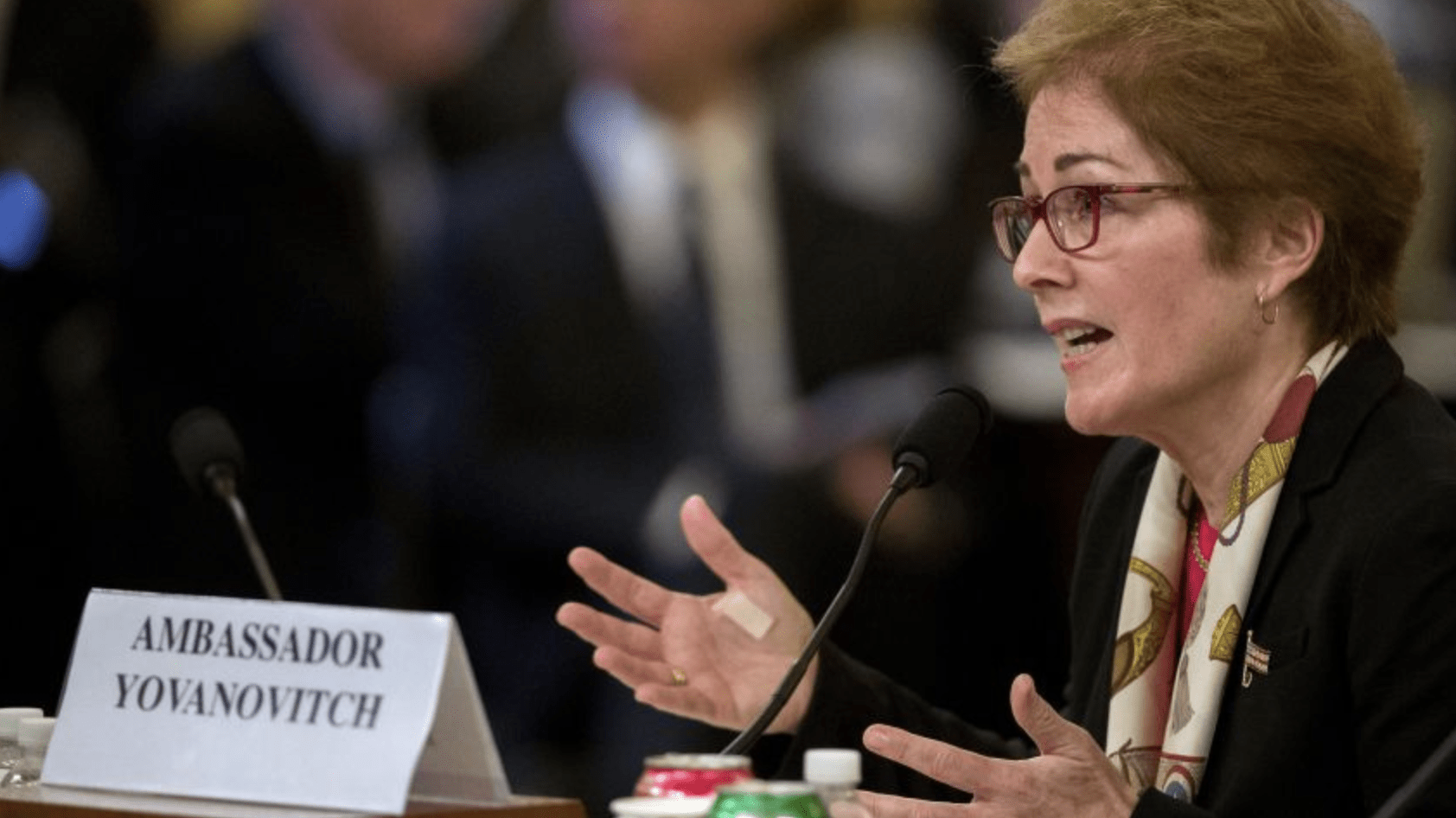‘State’ vs. the Shallow State: The Diplomats Strike Back

CNN
Lisa Van Dusen
Nov. 13, 2019
The trajectory of America’s diplomatic brain trust over the roughly one thousand days since President Donald Trump’s inauguration reads like a covert degradation operation: the evacuation of talent by intimidation and harassment, the institutional devaluation, the de-professionalization of the vocation by outsiders with murky agendas.
The U.S. State Department represented, as of January 20, 2017, both the conventional guidance of international relations by the world’s flagship democracy and rules-based order-anchoring superpower, and the invaluable institutional memory accrued in that role over the 230 years since Thomas Jefferson served as the first Secretary of State.
In the past two decades in Washington, a disproportionate percentage of power has shifted—based on both an explosion of funding, which has more than doubled post-9/11, and the omnipotence of post-internet covert technology—to the intelligence community, and away from Congress, the Pentagon, the State Department, and, notwithstanding Trump’s apparent intimidation of Langley, the White House.
The initial assault on Foggy Bottom was executed in the manner of a brutal corporate downsizing by Trump’s first secretary of state, former Exxon CEO Rex Tillerson. “Under Tillerson’s watch, 60 per cent of State’s top-ranking career diplomats resigned and new applications to join the foreign service fell by half, according to … the American Foreign Service Association,” Vox reported in March, 2018, following Tillerson’s firing.
Since then, the incremental, systematic degradation of the State Department has been presided over by the former director of the Central Intelligence Agency, Mike Pompeo. Since Pompeo arrived at the State Department 20 months ago, an already-destabilized and depopulated diplomatic corps has been further isolated, addled, and misrepresented by the same disinformation tactics that this regime has been deploying against other high-value targets including Congress, the media, and the American people.
That the public face of the wholesale buggery of American diplomacy is Rudy Giuliani’s—as the thugged-up head of a shadow foreign policy apparatus filling the vacuum left by an engineered exodus of professionals—would be morbidly hilarious if it hadn’t already been upstaged by the ne plus ultra democracy degrading punchline of Donald Trump in the Oval Office.
Impeachability aside, the issue more disturbing than Giuliani’s freelancing is the broader hijacking of U.S. diplomacy that has produced, among other previous unthinkables, the bilateral ridiculousness of the North Korea file, an oddly self-sabotaging trade war with China, the compulsive appeasement of Russia, and a global litany of exploding datelines—none of which serve America in particular, or democracy in general.
As the impeachment inquiry against Trump has progressed with the help of testimony from career diplomats—whose diplomatic careers and quality of life have been shocking casualties of this monumental clusterf**k—Pompeo has assumed the role of Secretary of Misdirectional Irony.
“As champions of American diplomacy, we are in the truth-telling business,” wrote Pompeo — whose untruths have been so steady that MSNBC’s Nicolle Wallace called him a “big fat liar” on the air — in a Nov. 1 email to thousands of State Department staff that, per Reuters, “struck a nerve in a diplomatic corps immersed in an impeachment inquiry against President Donald Trump that Pompeo himself has spurned.”
Ten career diplomats who’ve already testified in camera have begun doing so publicly this week. William Taylor and Deputy Assistant Secretary of State George Kent appearedbefore the House Intelligence Committee on Nov. 13, and Taylor’s predecessor as ambassador to Ukraine, Marie Yovanovitch—bullied out of her post by Trump due to an overabundance of integrity—will testify on Nov. 15.
As with so much of what unfolds in Washington and other key capitals these days, the blow-by-blow “how” of the circus in question is nowhere near as important as the “why.” Why have America’s norm-respecting, rules-based international order-upholding diplomats been so preposterously targeted as, per one White House spokesperson in a flourish of gaslighting projection, “radical un-elected bureaucrats waging war on the Constitution”?
Surely, Pompeo knows. But he’s probably not telling.
Lisa Van Dusen is associate editor of Policy Magazine and a columnist for The Hill Times. She was Washington bureau chief for Sun Media, international writer for Peter Jennings at ABC News, and an editor at AP in New York and UPI in Washington.
